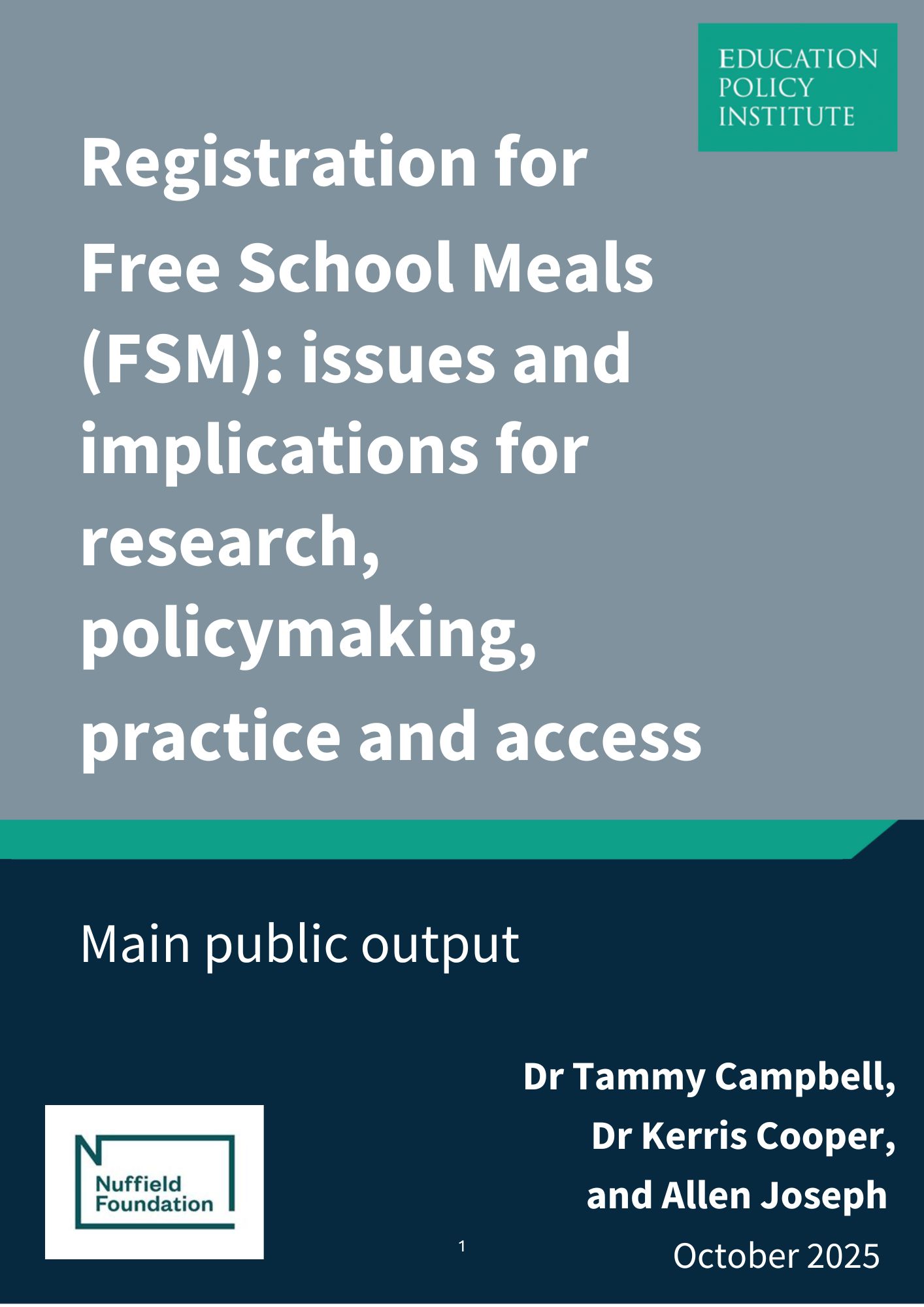The report, “Registration for Free School Meals (FSM): issues and implications for research, policymaking, practice and access”, is the final report from a Nuffield Foundation–funded project led by Dr Tammy Campbell and Dr Kerris Cooper at the Education Policy Institute (EPI). It examines how FSM registration is used as a proxy for disadvantage, deprivation, and family circumstances in research, and assesses its effectiveness, limitations, and implications for policy and practice.
With an expansion of entitlement criteria to all families in receipt of Universal Credit due to begin in September 2026, experts involved in the project recommend that now is the time for a rethink of how disadvantage is defined and how resources are targeted. The report makes a series of recommendations for government and policymakers, including:
-
Introduce a national system of centralised auto-enrolment for FSM to reduce the number of entitled children missing out on free meals and associated support, and to ensure that policy is implemented as intended and reaches those it is designed to benefit.
-
Extend auto-enrolment across educational stages by linking data collected at the statutory school stage with information from the pre-school years.
-
Simplify the registration process for children from families with no recourse to public funds (NRPF) by addressing administrative barriers, clarifying government guidance, and reducing fears that claiming FSM could affect immigration or asylum status.
-
Clarify free early years meal policy and ensure providers are properly resourced to deliver meals for all children meeting FSM eligibility criteria, regardless of the type of early years setting.
-
Remove the ‘before and after lunch’ eligibility criteria for children in the pre-school stage, which complicates registration processes and creates unnecessary barriers for families and providers.
This final output brings together findings from a series of research papers and reports produced throughout the project. Key findings from analysis of survey and administrative data and in-depth qualitative research include:
-
The majority of children living in poverty who were surveyed as part of the Millenium Cohort Study (MCS), were not even entitled to be FSM-registered at three of the four survey points (ages five, seven and 14).
-
Of those entitled, many were not registered at the time of their entitlement. A fifth of MCS sample children in very disadvantaged families who meet criteria for FSM eligibility at both the primary and secondary stages are not consistently registered at both stages.
-
Local authorities and schools invest in a range of approaches to maximise FSM registration, though there is still variation in FSM registration practices.
-
Despite increased efforts to maximise registration there are still barriers for parents/carers applying for FSM.
-
The current low income threshold makes FSM less meaningful as a measure of disadvantage – though the expansion to all families receiving Universal Credit from September 2026 will bring its own issues in terms of identifying the least resourced children.
You can download and read the full report here:


